India vs Pakistan in the UN Security Council
- sswatisingh1105

- Dec 5, 2020
- 6 min read
The ‘dossier’ that Pakistan shared with the United Nations Security Council (UNSC) to highlight India’s anti-Pakistan activities has captivated a lot of distractions in the international relations between India and Pakistan and has caused further abrasion in the diplomatic journey of India and Pakistan. It talks about the role of National Security Advisor (NSA) Ajit Doval in ‘fomenting’ these anti-Pakistan activities.
Pakistan foreign minister Shah Mahmood Qureshi and director-general of inter-services public relations (ISPR) Major General Babar Iftikhar held a joint press conference on November 14 to reveal that a dossier had been put together containing what they claimed was evidence of Indian terrorism and other negative activities to damage Pakistan.
While the dossier was not released, its overview, key messages and salient features were conveyed to the media, verbally and in two documents. These documents show that the dossier’s allegations are an attempt to give specificity to the charge that India has been promoting state terrorism in Pakistan through that country’s disaffected Pathan, Baloch and Muhajir groups. The allegations are full of shortcomings and without any credible proof. The dossier is also full of factual errors. This robs it of credibility, leave alone authority.
According to media reports, the dossier has not gained any traction and was unsuccessful in placing its roots deeper as it has been dismissed by the diplomatic as well as intelligence communities as the handiwork of a dilettante deep state of Pakistan. It was , therefore, dismissed by the international community as one more amateurish effort to train the spotlight on India and away from Pakistan on terrorism. Indeed, the dossier will be counterproductive for it will poorly reflect on the ISI in the region and beyond.
Certainly, the fact that Delhi’s démarches to the major powers against Pakistan’s terrorism were consistently ignored showed that they simply did not care and even considered the use of the tanzeems as legitimate in pursuing its interests against India. This situation began to change only after 9/11.
Then, Pakistan’s connections with the Taliban regime in Afghanistan which harboured al-Qaeda began to matter. The support of the Pakistani tanzeems to al-Qaeda began to hurt the interests of the West.
It’s at this time that what India had been saying all through the 1990s on the dangers posed by the Pakistani tanzeems began to be heard with at least partially open ears. However, as Pakistan’s cooperation in the war in Afghanistan was essential, the US and other western countries were unwilling to take a forceful stand on Pakistan’s terror against India. Privately, they made feeble noises on the issue to Pakistan. This was more to inform India that they had taken up the matter with Pakistan and nothing more.
It was only after the Mumbai terrorist attack of November 26, 2008, that the major countries realised that Pakistani terrorism put the Indian government under great pressure to take kinetic action. As open hostilities between neighbours would be obviously undesirable, the major powers began to put some pressure on Pakistan to curb the tanzeems. At the same time, they also began to publicly acknowledge the activities of these groups.
Yet Pakistan was able to take this in its stride for it did not materially impact on its cooperation with the western powers nor did the Pakistan army’s relations with the military establishments of the major powers suffer. There was an embarrassment to the army with the action against Osama bin Laden in Abbottabad in May 2011, but that could not even remotely involve India. Hence, it did not purposefully seek to make allegations against India for fomenting terrorism in Pakistan.
Olive branch
Prime Minister Narendra Modi essentially pursued the path of peacemaking with Pakistan from May 2014 (when he assumed office) till December 2015 when he visited Lahore to meet his Pakistani counterpart Nawaz Sharif.
The Pakistan army wanted to put an end to any peace-making opening and the Pathankot attack of January 2016 followed. Still Modi did not abandon the quest for peace for he allowed a Pakistan investigation team which included an ISI officer to visit India and go to Pathankot too.
Pakistan has chafed at having acquired the well-deserved reputation gradually over the past two decades as a principal centre of terrorism. There is no doubt that the international community considers it as such with the major western powers asking it regularly to control, if not eliminate, the terrorist groups that are based on its territory.
Though the situation was not always so. For instance, in the 1990s, the major powers, including the United States, were aware of the activities of Pakistani terrorist groups in India and Afghanistan but looked the other way. That emboldened Pakistan and also gave it the feeling that the international community had no objection to the activities of groups such as the Lashkar-e-Taiba (which it promoted and controlled) against India.
However, when after the killing of Burhan Wani both the Pakistan army and Nawaz Sharif went full throttle on provoking Kashmiri opinion against the government, Modi went cold on Pakistan. This sentiment got consolidated after the Uri attack and the surgical strike response. That response ensured that international opinion got more serious in asking Pakistan to control the tanzeems and abandon the use of terrorism. Of course, Pakistan was unwilling to do so.
Meanwhile, in March 2016, after abducting Kulbhushan Jadhav, Pakistan decided to use his so-called confessions to show the international community that India was not only undertaking espionage in Pakistan but using Balochi separatists to undertake terrorist acts. A high-profile press conference was held at which the Pakistan information minister and the DG ISPR gave details of what Jadhav had purportedly told them.
They named Indian intelligence officers and also National Security Advisor Ajit Doval as Jadhav’s handlers. In the International Court of Justice proceedings both in written and oral submissions Pakistan undertook crude and targeted propaganda against Indian intelligence officials and again specially focussed on Doval. All this was designed to impress international opinion that India was sponsoring terrorism in Pakistan. However, the major powers simply ignored these Pakistani endeavours and the dossiers that Pakistan reportedly gave them.
The February 2019 Pulwama terrorist attack by the Jaish-e-Mohammed, the Balakot aerial attack by India and Pakistan’s response led the western powers to realise that Pakistan’s pursuit of terrorism marked a dangerous escalation. Pressures on Pakistan to eliminate terrorist groups increased but Pakistan has resisted these pressures. The latest dossier is part of the response to the pressures. It is part of the same chain of attempts at influencing international opinion against India and deflect attention from Pakistan.
It will not succeed not only because Pakistan’s credibility is very low but also because of its untenable contents. For instance, it claims that a cell was established in the R&AW “under the direct supervision of PM” to “undermine, delay and disrupt” CPEC projects and for this work US$ 500 million has been allocated. Any one with even a modicum of knowledge of how intelligence services work would know that elected prime ministers never directly supervise intelligence work. Besides to claim that so large an amount has been allotted is prima facie preposterous as is the claim that a militia of 700 persons has been raised to implement for the work. There is repeated mention of how India is using Afghan soil to foment trouble in Balochistan.
The Indian embassy and consulates have been mentioned as coordinating such activities. These claims are bogus for in some cases the names of officers have been mentioned who do not exist and in other cases fingers have been pointed at ambassadors. This is simply not part of the Indian diplomatic tradition. What is interesting is that the names of the one ambassador who has been named has not been spelt correctly. This confirms the slipshod manner in which this dossier has been prepared.
Details of terrorist incidents are mentioned in the dossier. Of these the most serious was the Peshawar Army School massacre of December 2014 which took the lives of more than 130 children. It is noteworthy that the dossier does not allege that India sponsored the attack but that Malik Faridoon who it is claimed to have been involved in the planning of the school attack went to the Indian Consulate in Jalalabad to celebrate. Thus, it is hinted that India was involved in the attack. This is an unwarranted and unsubstantiated inference which only shows that the bogus nature of the charges. It is also noteworthy that all the groups involved are Pakistani.
There is also an internal political objective that the dossier is meant to serve at this juncture. The army and Imran Khan have asserted that Nawaz Sharif is serving Indian interests and this dossier is meant to remind people that he is cohorts with a country which is sponsoring terror against Pakistan; thereby tarnishing his image further.
Pakistani attempts at targeting India on terrorism charges are futile. India must continue its pressure on Pakistan on terrorism directly and through the FATF which is entirely within the ambit of international law.
The world has come a long way from ignoring Pakistani terror to putting some pressure on it. This is resulting in Pakistan to blame India as a sponsor of terror. But except for a few of its cronies the world will simply laugh away Pakistani claims.



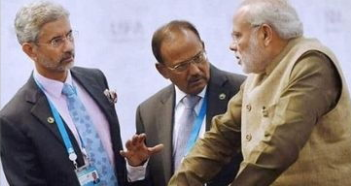

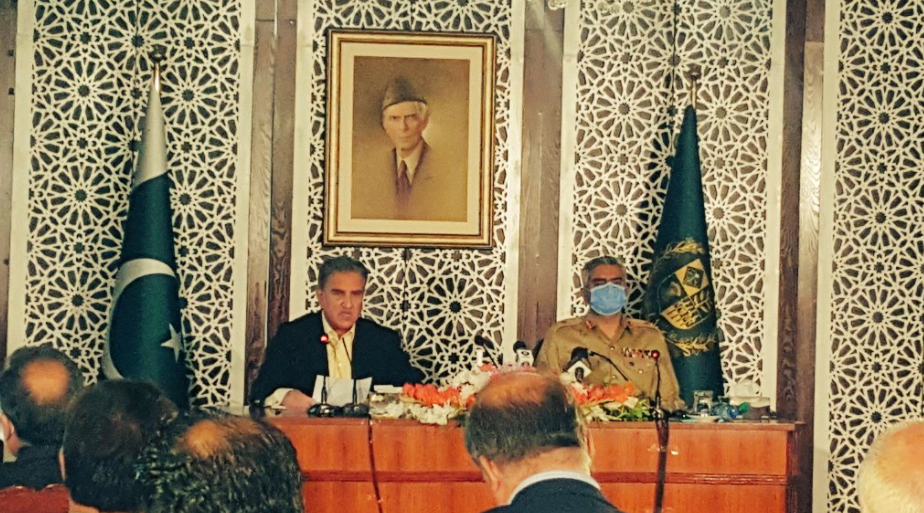

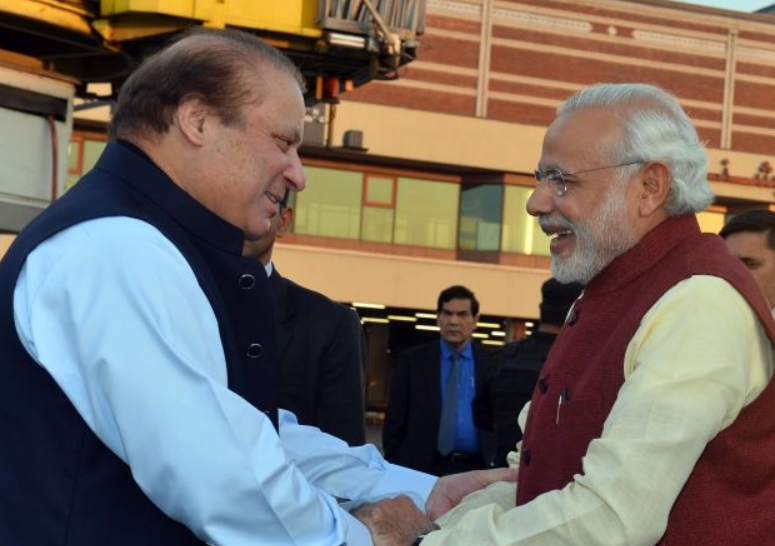

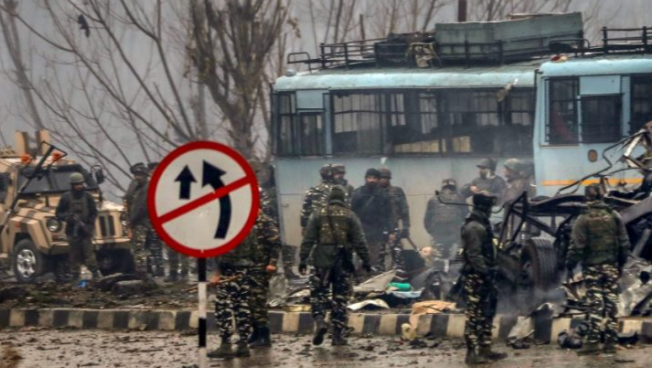

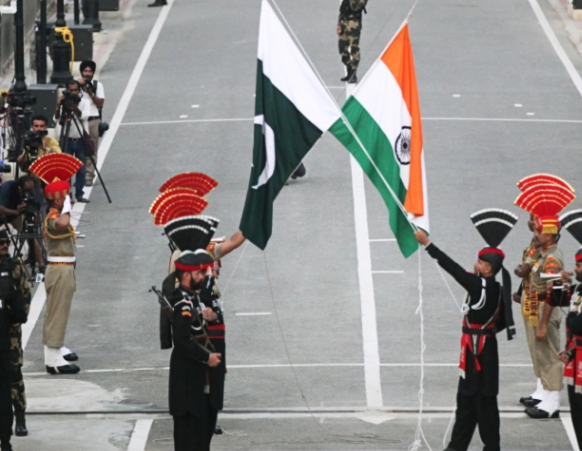















Comments